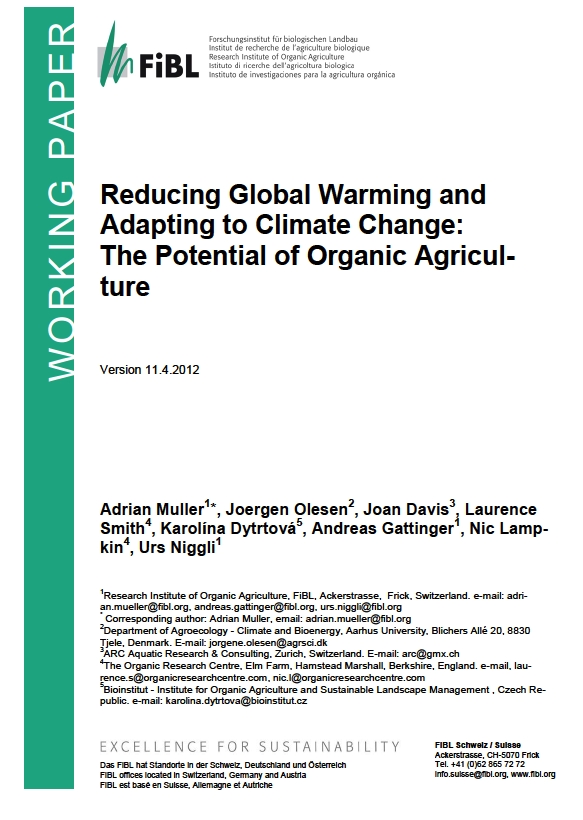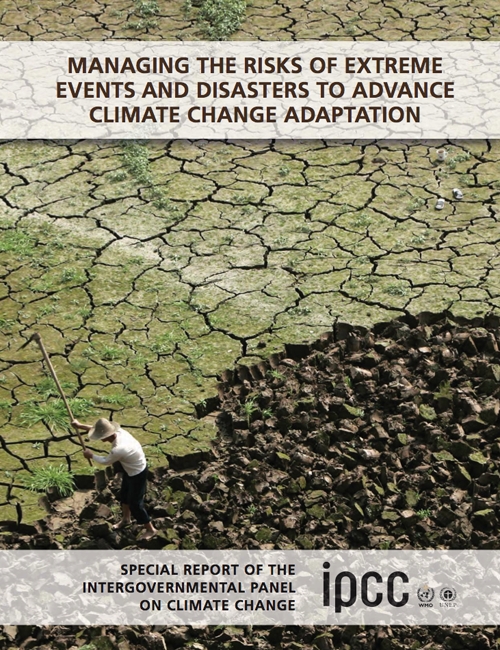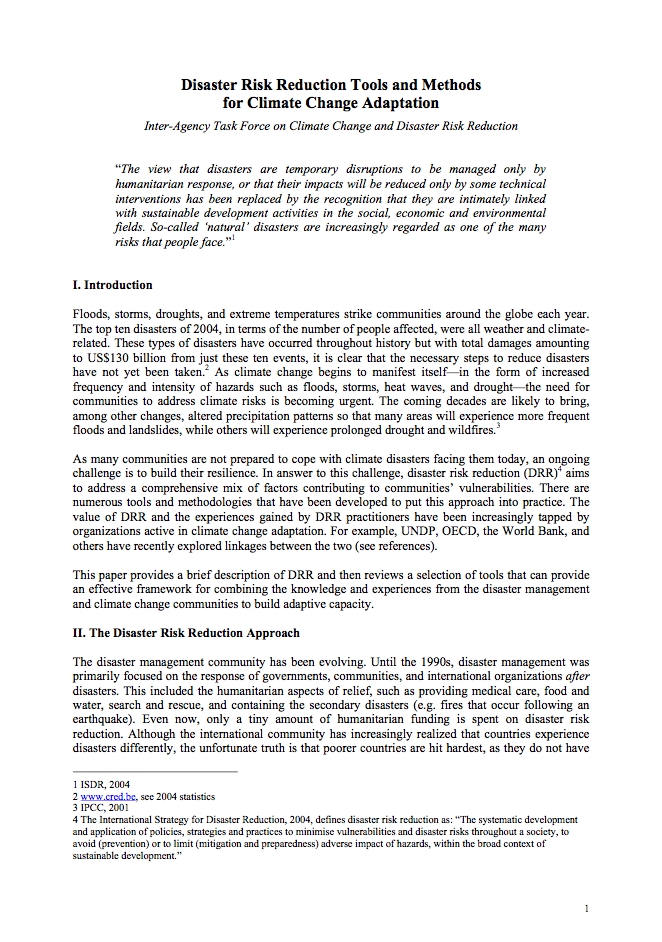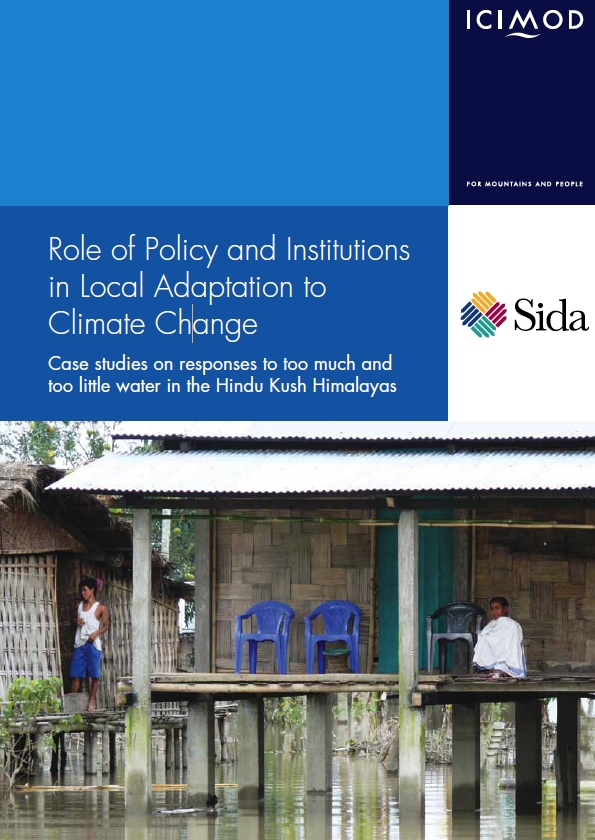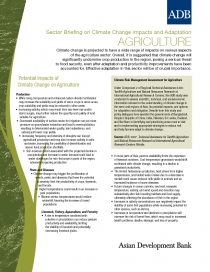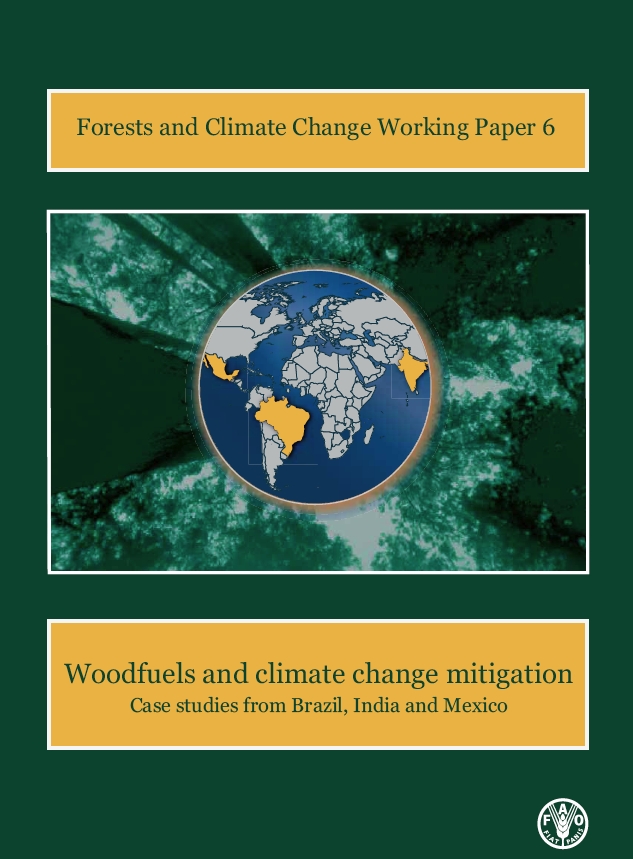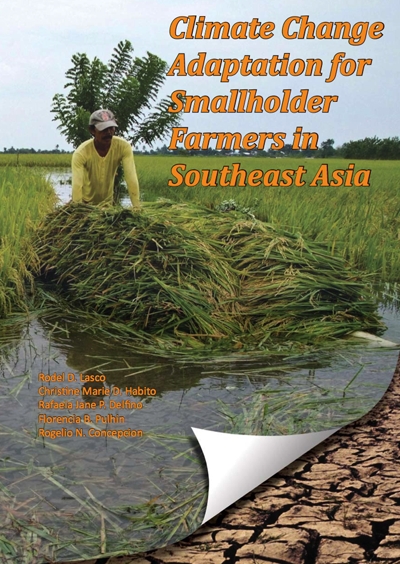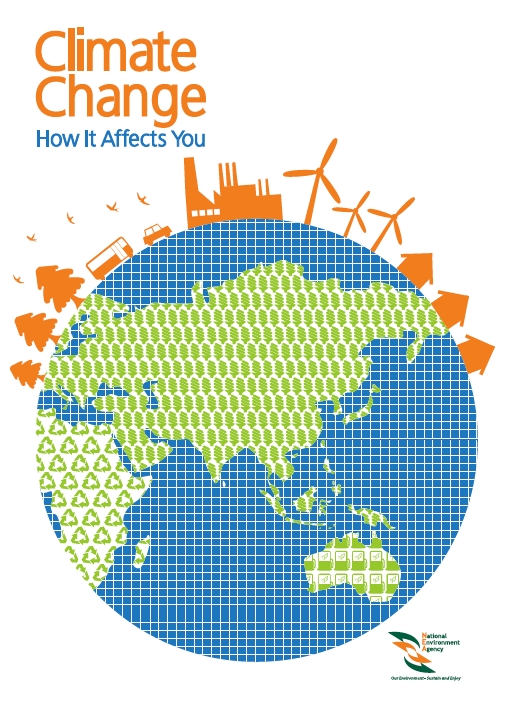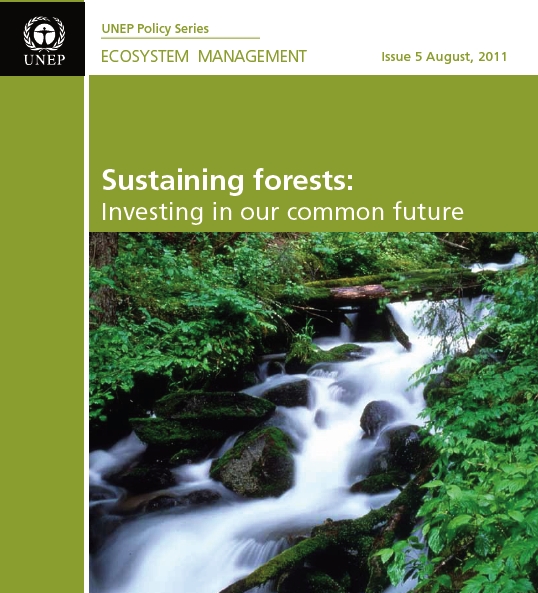Harvested Publications
The goal of this text is to provide a timely, short, understandable but nonetheless comprehensive and critical overview of this topic. It outlines the mitigation and adaptation potential of organic agriculture and addresses main opportunities, challenges, institutional and policy aspects, thus placing it in a broader context, which also addresses consumer aspects and policies.
Extreme weather and climate events, interacting with exposed and vulnerable human and natural systems, can lead to disasters. This Special Report explores the challenge of understanding and managing the risks of climate extremes to advance climate change adaptation. Weather- and climate-related disasters have social as well as physical dimensions. As a result, changes in the frequency and severity of the physical events affect disaster risk, but so do the spatially diverse and temporally dynamic patterns of exposure and vulnerability. Some types of extreme…
As many communities are not prepared to cope with climate disasters facing them today, an ongoing challenge is to build their resilience. In answer to this challenge, disaster risk reduction (DRR)4 aims to address a comprehensive mix of factors contributing to communities’ vulnerabilities. There are numerous tools and methodologies that have been developed to put this approach into practice...
Case studies on responses to too much and too little water in the Hindu Kush Himalayas With increased climate variability increasing the risk of floods and droughts, problems of too much or too little water are affecting the lives and livelihoods of the people in the Hindu Kush Himalayan region. Climate change is expected to exacerbate some of the conditions causing these problems. Although climate change has been discussed endlessly in international fora, very little ground research has been undertaken on its impacts.
Quick information on the climate change impacts on the agriculture sector and its climate vulnerability to help identify risks and priority adaptation responses.
This document summarizes knowledge and experiences in forest management as a response to climate change, based on a literature review and a survey of forest managers. This is part of an FAO-led process to prepare climate change guidelines for forest managers. It examines climate change impacts on forests and forest managers throughout the world. The document also reviews the main perceived challenges that climate change poses to forests and their managers. It summarizes experiences in preparing for and reacting to climate change in different types of…
With agriculture’s dependence on optimal temperature and water availability, climate change has been and will continue to be a critical factor affecting the productivity of different activities within the sector.
Information for the general public on the impacts of climate change on Singapore, the measures that the Government is taking to address climate change and the practical steps that the public can take to use energy efficiently.
Every day forests provide benefits vital to life on Earth and to the quality of human life in particular. Currently, some 410 million people are highly dependent on them for subsistence and income, and 1.6 billion people depend on forest goods and services for some part of their livelihoods. In a more general sense, the entire global population depends on forests for their carbon-sequestering services. Forests have always been crucial to human life and economies, and they will become increasingly significant as the global human population…
This publication discusses the activities and findings from the second phase of the Asian Cities Climate Change Resilience Network (ACCCRN), a program supported by the Rockefeller Foundation. Changes in climatic conditions represent one of the greatest challenges facing humanity over coming decades. Climate change poses special concerns for the rapidly growing cities of Asia, where large populations, rapid urbanization, extensive poverty and social marginalization, and an already high level of exposure to climatic extremes create risks for large numbers of people. The impacts of climate change are likely…

